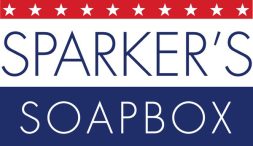Several people have asked me for advice on how to vote in the local Collier County races, on the proposed constitutional amendments, and straw poll votes. This is not something I’ve ever done before. In fact, it feels presumptuous and makes me a bit uncomfortable to share how I’m going to vote so publicly. But this is, after all, my political blog, so here it goes. I’ll appreciate your comments and feedback.
For the record, I am a life-long Democrat and I support the principles and platform of the Democratic Party. The Democrat’s view of the role of government is, in an over-used phrase, part of my DNA. That said, I will not hesitate to vote against a Party candidate or position if I disagree. As proof, consider my hesitation to vote for Democrat Kendrick Meek for U.S. Senate and my consideration of voting for Republican Pat Carroll for the School Board. (More on the latter in another post.)
In the state-wide races, here’s something many people don’t know: Florida has a “weak governor” in that his vote doesn’t count any more than that of the other Cabinet members (Attorney General, CFO and Commissioner of Agriculture). It’s the majority of the Cabinet that makes most of the Executive-level decisions in Florida. The only power the governor has that the other Cabinet-members don’t is veto power over legislation and line-item veto power on the budget. So knowing who you support for governor is only ¼ of what you need to know to make a complete vote for the head of the state’s Executive Branch of government.
For the Florida Cabinet, I support the Democratic ticket – Alex Sink for governor; Dan Gelber for Attorney General; Loranne Ausley for CFO, and Scott Maddox for Commissioner of Agriculture & Commerce.
For the U.S. Senate, as I’ve written in this blog, I prefer Kendrick Meek (D) but will vote for Charlie Crist (I) if, on Election Day, it appears that vote has a better chance of defeating Marco Rubio. Stay tuned to this blog; I’ll let you know when I’ve decided.
For the U.S. Congress, I live in District 14 (western Collier County), where Connie Mack (R) is running as the incumbent. I will vote against Connie Mack with a vote for James Roach (D), because I have disagreed with most – if not all – of Mack’s party-line votes in Congress.
This brings up an important question: how do you know what district you live in? Your voter registration card and sample ballot will tell you, but another way is to visit Vote411.org, a really cool website, and build your ballot with their online voters’ guide. You just type in your address to see the races on your ballot. Candidates’ positions can be compared side-by-side, and you can print out a “ballot” indicating your preferences as a reminder and take it with you to the polls on Election Day.
For the Florida Legislature, I live in House District 101, where Matt Hudson (R) is running as the incumbent. I will vote against Hudson with a vote for Larry Wilcoxson (No Party Affiliation), because I have disagreed with most – if not all – of Hudson’s party-line votes in the State Legislature.
State Senators serve for four-year terms and are elected in presidential election years, so there are no State Senate candidates on this year’s ballot.
Candidates for the Collier County School Board must live in the district they represent, but they are elected at-large, so all voters vote on all three of this year’s races. (The other two Board seats will be voted on in 2012.) School Board races are nonpartisan, but candidates are members of political parties. For District 3, I will vote for Kathy Ryan (D), and for District 5, I will vote for Roy Terry (R). I have not yet decided on District 1 – Pat Carroll (R) vs. Rosanne Winter (I; endorsed by the Collier Democratic Party). I’ll write about my dilemma in another post.
Judges – Florida uses a system called “merit retention” to select our justices and judges. New justices are initially appointed by the Governor from a list of three to six names submitted by a Judicial Nominating Commission. After that, voters decide every six years whether they should remain in office. Interestingly, no appellate court judge or Supreme Court justice has ever been voted out of office in a merit retention election since this system was put in place in the 1970s.
Justices of the Supreme Court – All Florida voters vote on retention of the seven Supreme Court justices. This year, four are on the ballot.
I will vote NO for Justices Canady and Polston, because both tried to stop the FairDistricts amendments 5 and 6 from becoming law. I will vote YES on the other two justices on the ballot – Labarga and Perry – who did not.
Judges of the District Courts of Appeal – Florida has five District Courts of Appeal with 62 judges who serve for six-year terms. Only residents of a District vote on the merit retention of that District’s judges. Collier County is in the Second Appellate District, in which five of 14 judges are on the ballot this year. Having heard nothing negative about these judges, and relying on Florida’s Judicial Qualifications Commission, which has authority to investigate and recommend removal of judges who have violated the Canons of Judicial Ethics, I will vote YES for these five judges.
I haven’t provided you with my rationale for some of these decisions, but if there are any you’d like to discuss, just let me know how to get in touch with you.
In another post, I’ll tell you how I plan to vote on the proposed constitutional amendments.
